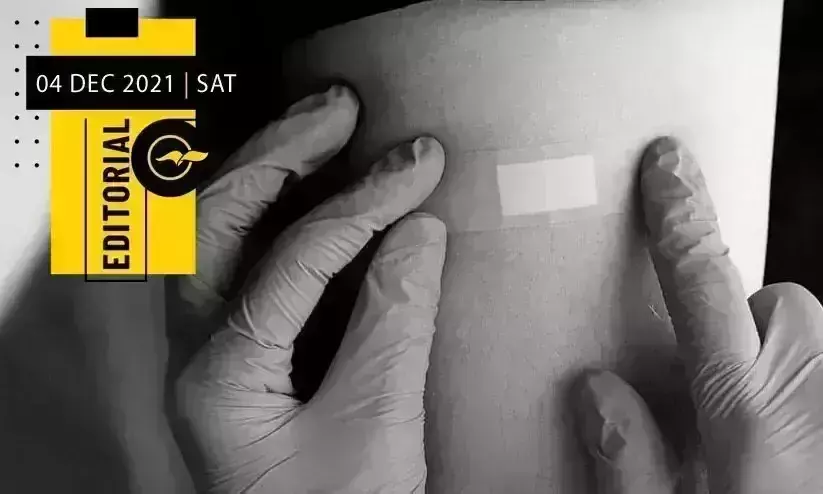
Is denying treatment the medicine to treat anti-vaxxers?
text_fieldsThe state government and the health department have taken strong action against those hesitant to take the vaccines against Covid-19. At the Covid review meeting on Tuesday, the Chief Minister himself made note that a section of the population is not taking vaccines despite various awareness campaigns and warnings. The government has decided not to provide free treatment to those who do not cooperate with these Covid prevention measures anymore. Or, the government will no longer bear the cost of treating those tested Covid positive without receiving the vaccine. The government has further added that anti-vaxxers would be exposed to the public. As part of this, the Minister of Education has said that the names and details of about 5,000 school employees, including teachers, who are not ready to be vaccinated, will be released. Since vaccines are the most effective prevention methods out there, there is no justification possible for maintaining such a negative attitude towards them. In that sense, the government's move is welcome. However, a closer look creates doubts if these actions will do more harm than good.
The Chief Minister and others have clarified that this drastic decision was spurred by the realization that they cannot go ahead with awareness and advice. If anyone wants to avail Covid or Covid supplementary treatment for free, they must either be vaccinated, or certified by any government doctor as unable to be vaccinated for health reasons. Anyone who does not receive the vaccine outside the determined group will no longer receive free treatment. In other words, the government deems these people as completely anti-vaccine. There are serious errors in that deduction. History has shown that anti-vaccine campaigns have been around for a long time. We have seen its repercussions many times, including in Kerala. History is only repeating itself in Covid's special case. There are those who present vaccines as a global conspiracy of modern medicine and the 'drug mafia'. Anti-vaccine arguments often revolve around these 'conspiracy theories'. It is not surprising that there are such anti-vaccine campaigns in Kerala as in other parts of the world. But that does not mean that those who do not get vaccinated are all believers of conspiracy theories. There might be several reasons why people are reluctant to get vaccinated. It is a fact that many people do not get vaccinated for social and religious reasons; some who rely on alternative medicine also do not take these vaccines as they are a product of modern medicine. Although not currently relevant in the case of Kerala, vaccine availability is another factor to be read together with this. Unlike other vaccines, the confusion caused by the Covid vaccine in the general population due to a variety of factors may also have added to the hesitancy. Considering these factors, the most appropriate way to combat vaccine hesitancy is to continue raising awareness only. Currently, 96 per cent of those over 18 in Kerala have received at least one dose of the vaccine. With the exception of those who have been given government exemptions and those who have not been vaccinated for the above-mentioned reasons, the conspiracy theorists are not even half the per cent of anti-vaxxers. For them, the Covid pandemic in itself is a conspiracy of modern medicine. Not only do these people not get the vaccine; they will not even seek treatment in case of symptoms. Instead of rushing these potential carriers to the hospital, the government is looking for ways to deny them treatment.
Nowhere in the world are anti-vaxxers treated in this way. Anti-vaccine campaigners are being prosecuted in many countries. There are provisions for that in our country too. When the Nipah virus engulfed the state in worry, Kerala, too, dealt legally with the 'conspirators' who came to the fore. There is nothing wrong with taking legal action against government officials who oppose the vaccine. However, denying treatment to these people is undemocratic; it is a human rights issue.
Suicide is considered a crime. All sorts of ethical and legal questions in denying treatment to the person who attempted it applies in the case of denying treatment to those who are against the vaccine. Simply put, it is an encroachment on the fundamental human right to live a healthy life.























